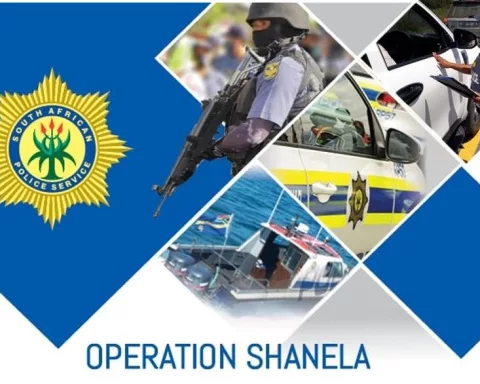The South African Police Service (SAPS) has made remarkable progress in addressing cross-border criminal activities in Northern KwaZulu-Natal. Within just three months, the task team deployed to the region by the National Commissioner of SAPS, General Fannie Masemola, has arrested 59 suspects. This success is the result of discussions with community leaders and the Minister of Police, Bheki Cele.
Task Team’s Focus
The task team, comprising specialized units and organized crime detectives from the police’s headquarters in Pretoria, focused on disrupting and dismantling crime along the border between South Africa and Mozambique. To strengthen cross-border operations, the Police Ministry and SAPS top management met with their Mozambican counterparts in Cape Town.
Achievements
Since the operation’s beginning, the multi-disciplinary team has:
– searched 51,750 individuals and 27,663 vehicles
– carried out 40 ongoing investigations and made 59 arrests.
– recovered 26 vehicles and 18 firearms.
One of the significant arrests was of a well-known criminal suspected of hijacking SUVs and LDVs before smuggling them across the border into Mozambique. The individual remains in custody.
Improved Safety and Security
General Fannie Masemola emphasized the task team’s effort in improving the safety and security of communities in and around Emanguzi. The team has emphasized eradicating the smuggling of vehicles across the border, and it has seized drugs and counterfeit goods in the area.
Multi-pronged Approach
The task team has adopted a multi-pronged approach, focusing on intelligence-driven operations, proactive patrols, and joint operations with their counterparts in Mozambique. These efforts have enabled the team to identify and target key criminal syndicates operating in the area. The task team has also engaged in community outreach programs aimed at educating the public about the dangers of cross-border crime.
Future Plans
The task team will continue to intensify its crime-fighting operations, ensuring that cross-border criminal activities are systematically dismantled. The team plans to expand its focus to include other forms of cross-border criminal activities, such as drug trafficking and human trafficking. SAPS is exploring additional avenues for collaboration with law enforcement agencies in Mozambique to further strengthen cross-border security.
Community Support
The task team’s success can be attributed not only to the dedication and hard work of its members but also to the support and collaboration of the local communities in Emanguzi and surrounding areas. The task team has worked closely with these communities to build trust and ensure their cooperation in identifying and reporting criminal activities.
Optimism
The SAPS, under the guidance of General Fannie Masemola, is optimistic that through continued collaboration with local communities, international partners, and law enforcement agencies, they will make significant progress in combating cross-border criminal activities in Northern KwaZulu-Natal and ultimately ensure the safety and security of the region’s residents.












